Tête-à-tête with the pride of Indian chess: Humpy Koneru
She was Asia's youngest WIM, India's youngest WGM. At the age of 15 years she broke Judit Polgar's record to become the youngest woman player in the world to be a full-fledged grandmaster. Be it under 10, 12, 14 or 20, she was won the title at the world level. A Arjuna award and Padma Shri recipient, she is a gem of Indian chess. Meet none other than Humpy Koneru and know her better with the help of this interview done by Niklesh Jain a few months ago at the Malaysian Open 2016.
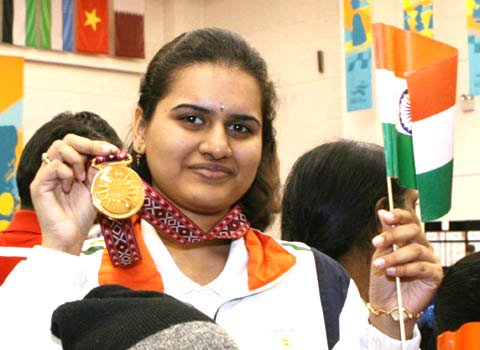
Niklesh Jain: Greetings from ChessBase. You are an icon in the field of chess for everyone from all around the world, not just India. Thank you very much for sparing time for this interview.
HK: That’s my pleasure.
NJ: So my first question to you is how did you get into chess? When did you start playing and what attracted you to the game?
HK: I started playing when I was six years old. Basically, my father was a chess player. He is a rated player and was also the State Champion of Andhra Pradesh. Once, when I was young, I saw him playing through games from the Chess Informant. That’s how I got attracted to the game and I started learning from him. I played my first event in Vijaywada, which was way back in the December of 1993. Eventually, I decided to become a professional chess player. My father was my coach until 2012. He was also travelling with me to various countries for tournaments.

NJ: Was there a tournament where you had that epiphany that you wanted to play chess for the rest of your life?
HK: Since childhood, I’ve enjoyed playing chess and have been extremely determined at the same time. I wanted to win every tournament I played in; that was my attitude. I was already eyeing the World Championship title by the time I had won the National U-9 Championship in 1997. And once I was the National Champion, I started taking it very seriously.
Before that, my routine was to go to school and practice chess for three hours every day. But after winning the National Championship, I completely immersed myself into chess. Soon, I won all these age category titles: U-10, U-12 and U-14. And then, I went on to become the World Junior Champion by the time I was just 14 years old.
A year later, when I was 15, I became a grandmaster. When I won the World Juniors, I wasn’t really expecting to win the title. I had only participated to gain some experience. Since I was only 14 years old, it was quite unexpected. That’s when I decided that I wanted to become a professional, or rather, a world-class player and a World Champion as well. That’s how it all started.

NJ: Humpy, we all know that your parents – your father in particular – was always there by you in your chess career. What would your message be to the parents of aspiring chess masters? I’m asking because, these days, we see a lot of parents standing outside tournament halls, supporting their children.
HK: Yeah, there are a lot of children from India and also from other countries who are passionate about sports. And I see that their parents are also encouraging them a lot. Compared to previous years when they used to concentrate more on studies, parents are now supportive of whatever field their kids are interested in. I think such support is needed for every kid, irrespective of the field they are in. For sports, it is also especially important to have a trainer. So I think it is also a matter of luck to have everything in place at the right time. But it has to really be appreciated since parents are extremely supportive of their kids. Even after the rounds – or between two rounds, when two rounds are to be played in one day – they are trying to prepare their kids for the round. It is really nice to see that.
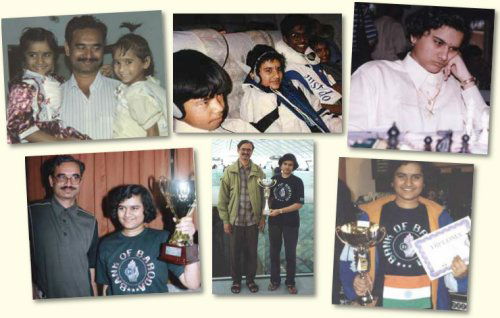
NJ: But everyone cannot be a grandmaster or a World Champion. Can chess still play an important role in children’s life?
HK: Yes, definitely. I think you can’t expect everyone to have the required dedication and professionalism it takes to become a GM or a World Champion. But chess can surely teach children to be more patient, it will help them take good, calculated decisions in life and also help them excel in academics. And I really mean what I am saying because chess has all the qualities that a person requires to tall up their general intuitions in daily life.
NJ: Does playing or not playing in a tournament affect or change your daily routine? If yes, how does it change?
HK: Well, lately, I haven’t been playing a lot of tournaments. But I still try to practice chess every day; at least for four to five hours. I’m more with my family these days. I’ve settled in Vijayawada currently. Both my parents and my husband are from this place. And of course, I take part in all the general public activities and things of that kind. So it’s nice, I’m having a great time!
But, I think, some years ago, I was a lot more professional. I used to work for longer hours and was completely into it. Nowadays, it’s a bit less. So I need to get back.
NJ: What are your hobbies apart from chess?
HK: I do watch a lot of movies these days; also, I go to the gym every day for an hour; and yes, I hang out with friends.
NJ: Talking of movies, who is your favourite actor/actress?
HK: There are a lot, and my favourites keep changing every now and then. But of course, I like films of Surya and Mahesh Babu. But if you ask me again a few days later, my favourites would have changed.
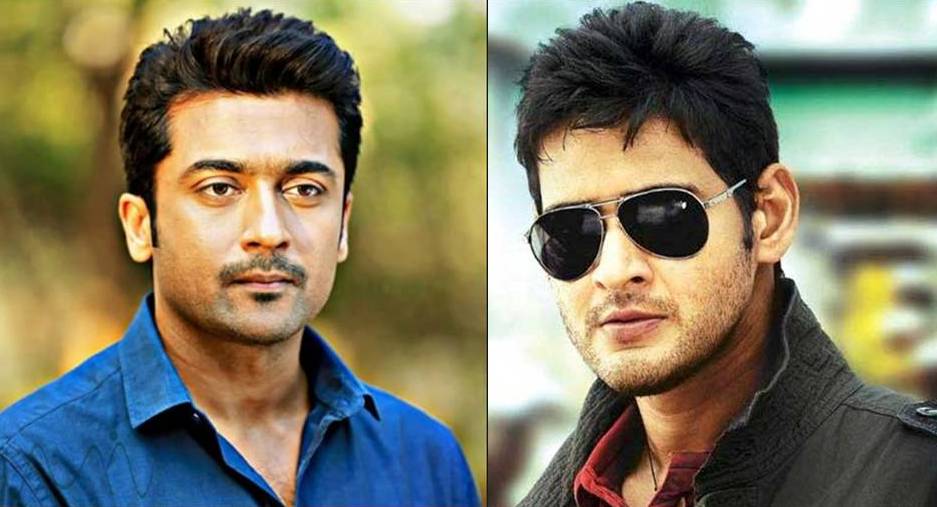
NJ: Do you also watch Bollywood movies?
HK: Very less; mostly I like watching Telugu films.
Atul Dahale: My favourite is Arya.
HK: Ah, haha! That is a good movie!
NJ: Okay, coming back to chess, did you have a chess idol when you were growing up?
HK: Since childhood, I’ve been a big fan of Judit Polgar. I always wanted to be like her. Like her, I also wanted to fight in the open section and compete with men. That’s how I got inspired seeing her games. Though we have completely different styles of play, I somehow like the way she plays, her approach and her psychology. I admire her a lot.
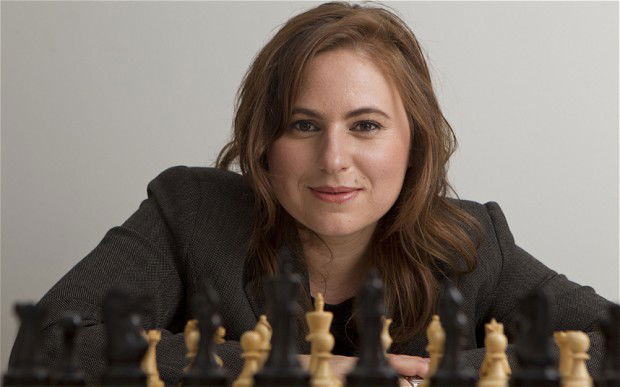
NJ: You’ve played in several world championships already and you were one of the favourites in many of these. I’m sure you must have analyzed later; what did you miss out on in these championships that kept you from clinching the title?
HK: Yeah, I’ve lost in these knock-outs very narrowly many times in the semi-finals. I think I was much tensed at crucial points. And more than that, I am not so great at rapid and blitz. That’s what, I think, was a drawback for me.
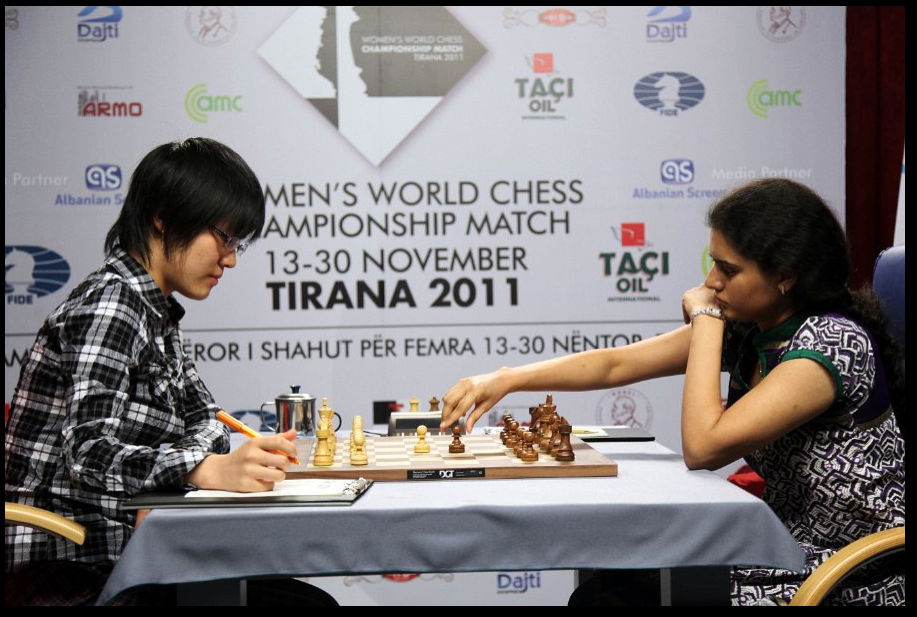
And when I played this World Championship match against Hou Yifan in 2011, I wasn’t able to resist her at all. After just two rounds, I started to collapse. I feel I should have widened my opening repertoire much before. And also, my style was very positional at that time. Probably, I should have concentrated more on my middlegame and endgame technique rather than making opening preparations for the title match. But it also depends on certain things: like, personally, I think I didn’t have a match experience, whereas Hou Yifan has already played some matches with Karpov and many other players. That matters a lot during such crucial games. We Indians have very limited access. Even in the present generation, there are many talented players who are near 2600. But they have lesser opportunities in comparison to European or Chinese players.
NJ: So do you think experience in match play is very important at such high level?
HK: Yes, it is really crucial because match play requires a completely different psychology. The mental stress is far higher; especially when one is playing for the world title. There are many things that need to be coordinated in order to help our players succeed at such high level.
NJ: In future, if you get the opportunity to participate in a one on one match in India, would you like to play?
HK: Yes, definitely. I am not against playing in India at all. But it has to be ensured that the playing conditions are competent with what is required for grandmasters to play. It doesn’t matter even if it is in a small town. I would definitely enjoy playing if it is organized properly with a good average rating of the participants and all that.
NJ: Humpy, you’ve already proven to the world how high women can soar. But, unfortunately, there are still quite a few parents who wouldn’t want to let their girls participate in tournaments or travel too much for chess or even anything else for that matter. If you were asked to give a message to such parents, what would it be?
HK: I don’t think we should differentiate between children based on gender. Both genders are equal. In fact, in fields like education, and also in many other professions, it has been seen that girls are doing better than boys. Coming to travelling for chess, I understand it’s a bit difficult for parents to leave their girl alone. Even I faced this at home. My father wouldn’t like me to travel alone to Europe and all. In that way, I don’t know, it depends upon their personal relation and attachment. It’s very difficult to say that you have to leave them as such, but they should definitely encourage girls to be professionals.
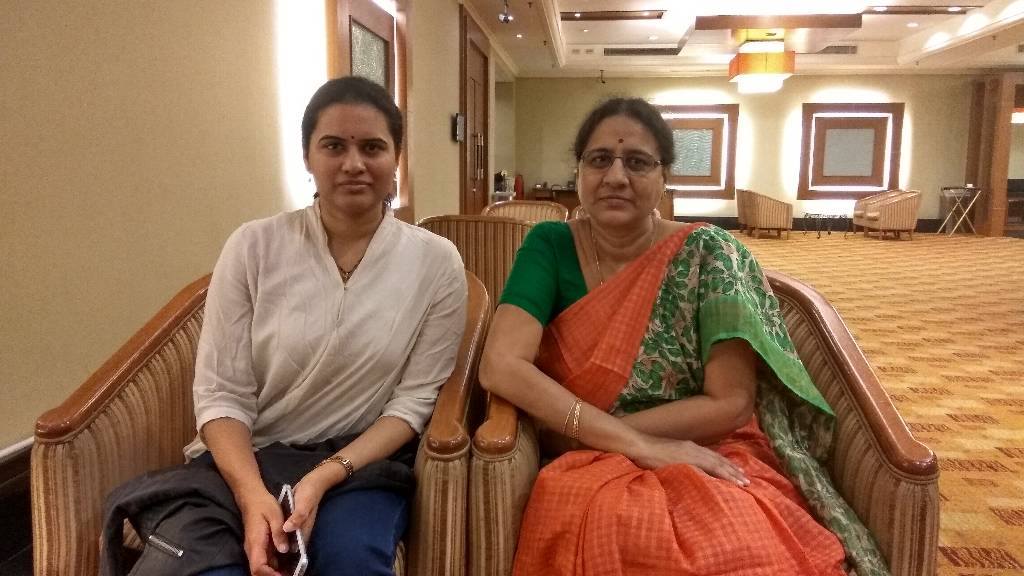
NJ: In the last few years, chess has turned digital. What changes did you face in terms of preparation in this respect?
HK: I would say that it’s completely different when you’re playing in an open tournament than when you are preparing for something like a Grand Prix or a World Championship. In open tournaments, you can just go there and be practical. But while preparing for something as strong as the Grand Prix or the World Championship, you have to be perfect in your preparation because you’ll be meeting the same player(s) very often. You need to show some novelties or changes in your opening repertoire to get an edge over your opponent/s. So at that time, a lot of work has to be done.
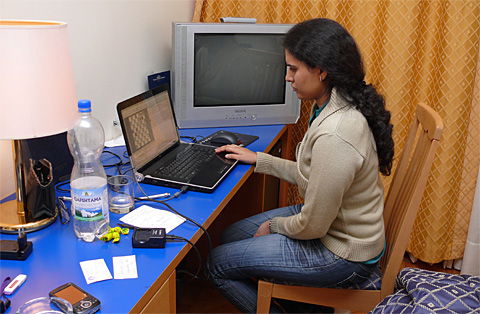
NJ: Do you have a team of seconds or are you working on your own?
KH: I am mostly working on my own but at times a few friends do help me. I don’t want to reveal who they are right now, however.
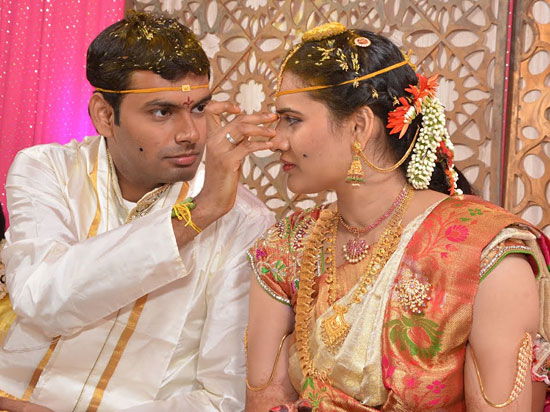
NJ: Of course. Thanks a lot for your time Humpy. It’s been a pleasure talking to you.
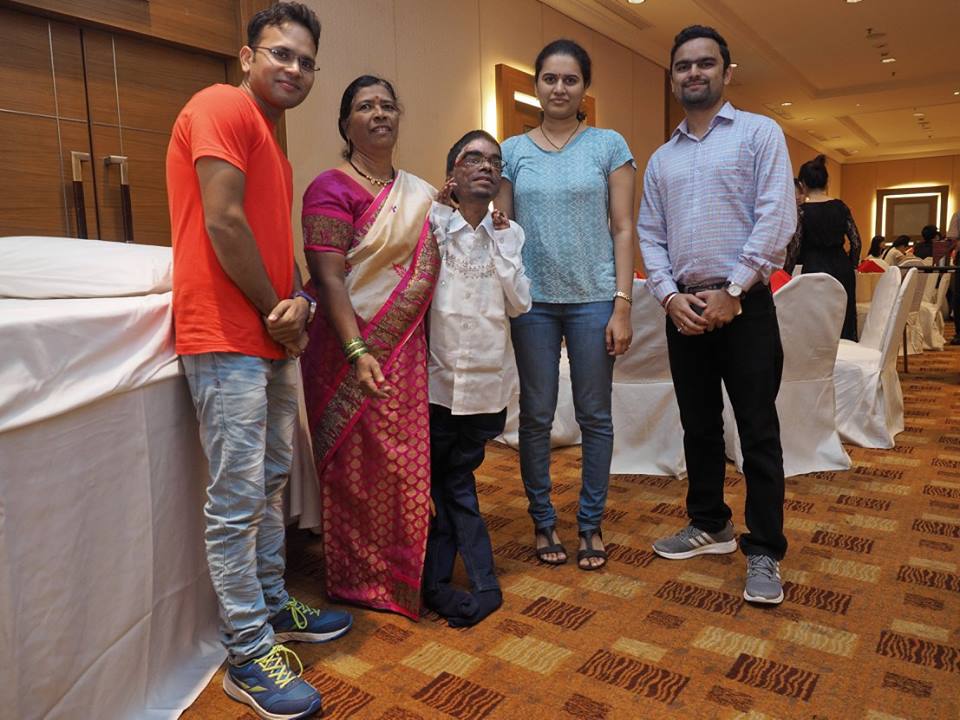
Special thanks to Aditya Pai who worked really hard to transcribe the entire interview.

